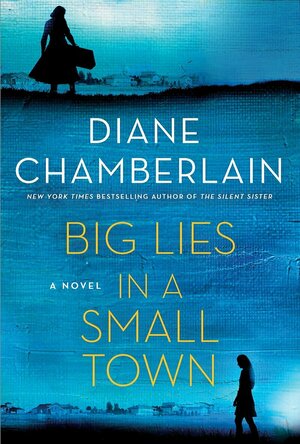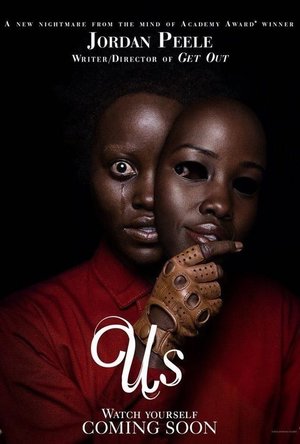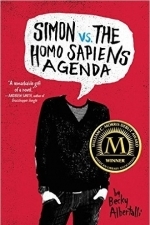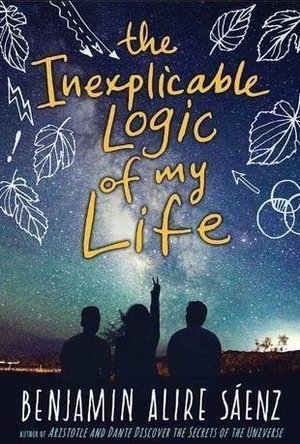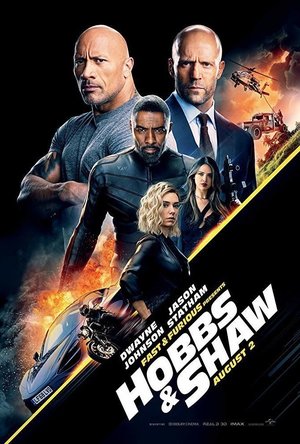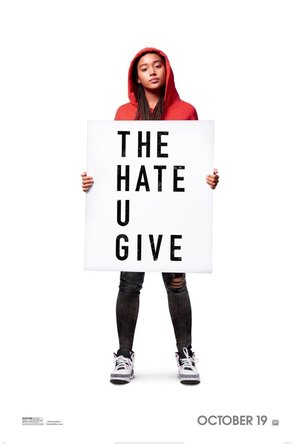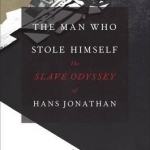
The Man Who Stole Himself: The Slave Odyssey of Hans Jonathan
Book
The island nation of Iceland is known for many things majestic landscapes, volcanic eruptions,...
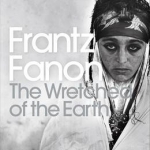
The Wretched of the Earth
Jean-Paul Sartre, Frantz Fanon and Constance Farrington
Book
Frantz Fanon's seminal work on the trauma of colonization, The Wretched of the Earth made him the...
Rethinking Shakespeare Source Study: Audiences, Authors, and Digital Technologies
Dennis Austin Britton and Melissa Walter
Book
This book asks new questions about how and why Shakespeare engages with source material, and about...
Kristy H (1252 KP) rated Big Lies in a Small Town in Books
Mar 19, 2020
I've never read a book by Diane Chamberlain before, and I really enjoyed this one. It's oddly captivating for centering on a painting from the 1940s. The point-of-view switches between Morgan and Anna and each are compelling narrators in their own right. This was one of those books where I found myself desperately wishing I could read faster, as I wanted to find out what happened to Anna (we're told early on she "went crazy").
I applaud Chamberlain for her original plot. It's odd, but not in a bad way, as it had me interested the entire time. She does a wonderful job of creating two completely different worlds: Anna's in the 40s and Morgan's in near present-day. She deftly weaves in art aspects; Morgan's drunk driving conviction and her past in prison; Anna's possible mental illness; and Morgan's benefactor, so to speak, Lisa, who springs her out of prison to fulfill the wishes of her late father, Jesse, a famous artist.
While this novel is mainly fiction, there are some great twists and turns, especially as we learn what happened to Anna. Chamberlain delves into race relations, as Anna confronts the prejudices of the south in the 1940s. Her writing style is easy, making you want to keep reading, and overall, I quite enjoyed this one. 4 stars.
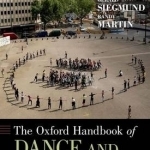
The Oxford Handbook of Dance and Politics
Randy Martin, Rebekah J. Kowal and Gerald Siegmund
Book
In recent decades, dance has become a vehicle for querying assumptions about what it means to be...
What a great film “Get Out” was. Jordan Peele’s classic which unpeeled (sic) race relations in a wholly novel and horrifying way. Yes, the story was a bit ‘out there’ and unbelievable, but he pulled it off with great chutzpah.
With his follow-up film – “Us”…. sorry but, for me, it just didn’t work.
From great beginnings
It all starts so promisingly. Young Adelaide Wilson (a fine debut performance by Madison Curry) is on a seaside holiday with her mother and careless father when she wanders onto the deserted Santa Cruz beach at night. There sits, like some gothic horror ghost train, the Hall of Mirrors. “Find Yourself” it taunts. She makes the mistake of entering and changes her life forever.
Spin forwards 30 years and Adelaide, now a married mother of two, is back in Santa Cruz with a terrifying feeling that things are about to go pear-shaped. And of course they do!
Why oh why oh why those voices?
This film had me gripped until a particular point. Having people stand still and silent at the end of your drive is an incredibly spooky thing to show. But then, for me, the wheels came off big time. The “reveal” of who these people were I could take. But the manner of their behaviour and – particularly – how they talked was horrifying; and not in a good way. When “Red” started speaking I couldn’t believe my ears: Joe Pasquale after swallowing Donald Duck.
From there, the film became farcical for me, descending in progressive stages to a tunnel-based apocalypse: a plot element that was just so paper thin it bore no scrutiny at all.
This was, no doubt, an attempt at a satirical dig at the class structure of America (“We are Americans” adding a double meaning to the name of the film). If it had been played as a deliberate comedy farce it might have worked. But otherwise no.
Flashes of Peele brilliance
This is not to say that there are not positives in the film. The excellent Lupita Nyong’o gives the whacky material her all, and the other adult female lead – Elisabeth Moss (from TV’s “The Handmaid’s Tale”) – is good value as Kitty Tyler: a diabolical incarnation in either form!
Peele also delivers flashes of directorial brilliance. The “hands across America”, disappearing into the sea, is a sight that stays with you. I also liked the twist at the end, although in retrospect it’s difficult to relate it to the rest of the story and strikes of desperation in the storytelling.
Overall, a big disappointment
I know there are some who really like this movie. Each to their own, but I was not one of them. After “Get Out” I was hoping for something much better. I hope that was just Jordan Peele’s “difficult second album”.
pheebs (3 KP) rated Simon vs. the Homo Sapiens Agenda in Books
Nov 23, 2017
‘The love child of John Green and Rainbow Rowell’ – Teen Vogue
“The best kind of love story.”—Alex Sanchez, Lambda Award-winning author of Rainbow Boys and Boyfriends with Girlfriends
This book is a whirlwind of emotions, as soon as I finished scouring its pages I felt as if I had to read the book all over again, I did then abruptly lent it to a friend who found it just as amazing as I did. It’s a heartfelt story which really seems to capture the essence of being a teen in modern-day society, dealing with our problems, our worries, our trials and tribulations.
The main character is Simon, a boy who is finding life hard, with an overly happy family who like to be very involved and love to talk openly about their feelings, something that Simon is finding increasingly hard more specifically with his sexual preferences. The protagonist of the story is an unlikely fellow who creates dilemmas in Simon’s mind as he wishes to save his previous ‘Blue’. Simon is surrounded by bountiful characters that link smoothly into to his life an thoughts in a normal manner. We learn about his family through his fond memories and thoughts as well as the conversations they exchange in the book, the same can be said for his closest friends. He has three friends that stand out as more prominent characters, the book also focuses on how his relations with them change and how it affects them.
The book is written in a subjective narrative, it tells us only the information that Simon knows so that we know no more or less than him, equating to us having a possibly bias view towards certain characters, thus once again making it more realistic. It deals with problems that teens struggling with their sexuality in day-to-day life face both in the real world and the cyber one. It reveals to us just how hard it is to control information that gets leaked out onto the internet, how fast it can spread and change your life in the ‘real’ world. Your life can be drastically altered by a few words and a persons malicious intentions and this book helps prove just how down heartening it can be as well as focusing on the light at the other end of the tunnel.
All of the characters play great roles in Simon’s life, he lives in a very open family so he feels as if he is keeping something terrible from them especially with of hand comments that his fathers sometimes makes. We read about different things in his life that he loves such as drama, as he attends school play rehearsals often.he deals with the struggles of maintaining friendships under pressure.
I would recommend this book to anyone no matter their age, race, gender or sexual preference. It’s a romantic coming of age comedy that warms me to my toes making me wanting to keep reading over and over again (as I have done many a time). If you liked ‘Will Grayson, Will Grayson’ by John Green and David Levithan then you will most definitely enjoy this book.
Hazel (1853 KP) rated The Inexplicable Logic of My Life in Books
Dec 7, 2018
Over the past couple of years, social media, particularly Tumblr, has been raving over Benjamin Alire Sáenz’s multi-award winning novel, <i>Aristotle and Dante Discover the Secrets of the Universe</i>. As a result, I have wanted to read this book to see what the fuss is about. Unfortunately, libraries and bookstores in the UK do not appear to stock any of Sáenz’s novels.
When I saw an ARC of <i>The Inexplicable Logic of My Life</i> was available for request on NetGalley, I took the risk, having not read any of Sáenz’s work, and requested a copy. And I am truly glad I did. What, from the blurb and book cover, could result in a mundane Young Adult novel, turned out to be a thing of true beauty. The prose is almost poetic and full of emotion; it not only tells the story, it makes you feel it too.
The narrator, Salvador “Sal”, is beginning his final year at El Paso High School with his best friend Sam. Normally, the first day of school is something he looks forward to, however he feels differently this year. Something within Sal has changed, something indescribable but there all the same. Something that makes punching someone in the face an automatic reaction.
Sal’s dad is gay. Although not his real dad, Vicente adopted Sal into his extended Mexican American family after the death of his mother when he was three years old. He could not have asked for a better parent, but something is niggling in the back of his mind: who is his birth father?
Whilst Sal soliloquizes about his feelings, the reader is introduced to best friend Sam – a girl who, despite an erudite vocabulary, is not afraid to cuss and swear. Sam also understands what it is like to not truly know who you are, as does Fito, another friend, with terrible relations. Tragic events pull the three together, giving them a new chance at being part of a family despite not being blood related.
Sal, Sam and Fito try to help each other through their problems, ruminating together over their pasts and contemplating the unpredictable future. Despite each character suffering from grief, their friendship gives them a purpose and the encouragement to carry on.
<i>The Inexplicable Logic of My Life</i> covers so many themes it is impossible to categorize. Sam, Fito and Vicente are all encumbered with something that could ostracize them from society – their sexuality, race, drug addict parents – but they never let this get in their way. Sal, on the other hand, struggles somewhat, believing he no longer knows who he really is. He questions everything: how does he fit into the world around him? What right does he have to graduate and go to college?
With great efficacy, Sáenz explains through Sal’s voice, the importance of believing in yourself, letting yourself be loved, and accepting things for what they really are. All the main characters are trying so hard to belong; they do not realize that they always have belonged.
<i>The Inexplicable Logic of My Life</i> is a story of grief, death, family, friendship, fathers and words; a graceful, almost lyrical, narrative that gets to the heart of human existence and uplifts the spirit. The expressive language has a great emotional impact on the reader – have your tissues at the ready – and resonates within the soul. With quotable lines that you will wish you had written yourself, I guarantee you will love this book.
Bob Mann (459 KP) rated Fast & Furious Presents: Hobbs & Shaw (2019) in Movies
Sep 28, 2021
(That title is especially for my friends the Shaw family!).
Well, the patchy British summer’s just about up, and autumn’s chilly fingers are touching up the UK. And yet I still hadn’t seen the summer hit “Hobbs and Shaw”! Until last night.
It’s utter nonsense of course, like most of the “Fast and Furious” films, but I have to admit it’s done with some tongue in cheek style.
The plot
A vicious cyber-soldier, Brixton (Idris Elba) tries to steal a deadly virus but is thwarted by brave MI6 agent Hattie (Vanessa Kirby). To help recover the virus, Deckard Shaw (Jason Statham) is recruited in London by CIA agent Loeb (Rob Delaney, the “non-super” hero Peter in “Deadpool 2“). In an interesting piece of related casting, the Eteon Director (Champ Nightengale – LoL, a cameo for someone far more famous) recruits Luke Hobbs (Dwayne Johnson) in LA as a part of the team.
Both agents know they are heading for trouble… but do they really appreciate how much the pair hate each other’s guts?
The trail leads from London to the Ukraine to (a very picturesque) Samoa in a race against time to both defeat the undefeatable Brixton and save Hattie: now a ticking time bomb of global destruction. And Hattie has relations!
Absurd stunts.
As a “Fast and Furious” film there are of course some truly absurd car stunts involved and – unlike the Mission Impossible films – you are never quite sure what is “real” and what is CGI generated. Which is a shame.
For me, the gold standard for chases remains Tom Cruise‘s chase through Paris in “Mission Impossible: Fallout“. Here, the car chase through London – whilst impressive – never quite reaches the seat clenching tension of MI6.
And a final stunt with a helicopter is – I’m sorry – just plain ridiculous. If a chopper can partially lift 5 x load then why can’t it completely lift 1 x load. Give me a break!
To round things off, there is one of the most unbelievable “100% survival of a car crashing off a cliff” scenes in movie history!
Acting
The acting is largely from the Arnie Swartzenegger school, with Johnson and Statham giving it the old shtick. Dwayne Johnson may be one of Hollywood’s most bankable stars (the boy has done REAL good for himself), but he can’t do serious acting. His “pathos” scenes with his daughter (a vibrant Eliana Sua) are excruciating.
Dropping in as class acts are Helen Mirren as the elder Shaw and the excellent Vanessa Kirby as Hattie. Kirby gets a lot more to get her teeth into than in the last Mission Impossible movie, and is really very good. Mirren is rather too posh to be the incarcerated East End con, but is a fun turn nevertheless.
Also excellent, as always, is Eddie Marsan as the key scientist. Marsan really turns in a splendid performance in every film he’s in. He’s top of “Division 2” in my books. Never the star, but always starring.
Mexican actress Eiza González (from “Baby Driver“) also crops up as an unfeasibly good-looking Russian femme fatale.
“I hate you”. “No, I hate you”. Blah, blah, blah.
Writers Chris Morgan and Drew Pearce do a good job at keeping the script light and fluffy. The animosity between Hobbs and Shaw is played to 110%, and for me the interplay frankly became a bit tiresome. But it’s a fun-enough film to entertain, although it’s bladder-testing running time of 2 hours 17 minutes is at least 30 minutes too long. There is a natural Ukraine-based finale, but it’s not taken, and the film goes on… and on… and on…. and on. Enough already.
I’ve said many times before that comedies shouldn’t last more than 90 minutes, and although an “action film” this is fundamentally a comedy and the rule should apply. It would have been a much better film if it was compacted.
Sexism diverted.
I did criticize “Fast and Furious 8” for scenes that brazenly objectified women. And there was a moment – just one, fortunately – with a gyrating bikini-clad beauty – where I thought “uh, oh” – this franchise has not moved with the times.
But actually, this was the only scene where I thought that. Cinema has moved along massively in the last two years, driven by the “Times Up” movement. Here the women are all given pretty leading “kick-ass” roles, and they generally show the muscle-bound morons up, often saving their arses.
Final Thoughts.
It’s summer popcorn nonsense, but its well done popcorn nonsense. Probably not a film high on my list of films I want to see again, but as an entertainment vehicle it was not too shabby.
Bob Mann (459 KP) rated The Hate U Give (2018) in Movies
Sep 28, 2021
I’m afraid this movie didn’t do very well on either a) or b) at my showing: about 20 people left immediately, and more tellingly about another 20 people left in the first half hour. There’s a reason for that: the first half hour of this film is goddamn awful!
Starr Carter (Amandla Stenberg) is a sixteen year-old resident of Garden Heights, a black neighbourhood in a US city, where she lives with her younger brother and step-brother. Their parents Maverick (Russell Hornsby, “Fences“) and Lisa (Regina Hall) are devoting all of their energies to “break the cycle” and get their kids out of the neighbourhood and off to college and better futures. As such, the kids attend not the rough-house local school but a much more upper-class establishment: there Starr has to play a different role, with links to her origins being kept hidden even from her white boyfriend Chris (K.J. Apa).
But all that changes when her boyhood friend Khalil (Algee Smith) is shot and killed in a police stop-and-search. As the only witness, and with Khalil linked to local gang lord King (Anthony Mackie), Starr’s anonymous world is about to get a national focus shone onto it.
Man… I hate voiceovers in films and always have. So I really hated the start of this film which has Starr narrating ABSOLUTELY EVERYTHING (“Blah, blah, blah..”): no audience discovery is required. It also starts with a sort of highschool romance vibe, but not one that’s well done with kissing (“Blah, blah, blah..”) while the local Mean Girls look on (“Blah, blah”) then with Starr’s friends trying to act street (“blah, blah”) while Starr tries not to be street, all to the constant droning of Starr’s voiceover (“Blah, blah, blah..”). (I never walk out of movies…. but I can kind of understand the rationale of those who did).
Fortunately the voiceover then largely recedes (it only pops up with occasional staccato “thoughts”, before storming back for a “blah, blah” finale). And with the shooting, the film takes on a much more interesting slant, giving Amandla Stenberg a chance to really shine.
I have commented on Ms Stenberg before: she was the only really good thing in the recent “The Darkest Minds“. Here she exhibits a tremendous range from the delighted (her smile is radiant and seems astonishingly unforced) to the heartbroken and furious. There’s also a really strong supporting cast with great turns from Hornsby, Hall, Mackie and Smith. Hornsby in particular I found great as the Dad desperately tutoring his kids in military (but loving) fashion to avoid his mistakes.
For me, this seemed to be a surprisingly atypical view of a black ghetto-living family. A scene set in a diner is genuinely touching at emphasising the loving and close-knit nature of the Carter family.
Where I will struggle here is in trying to interpret my overall feelings about the film. As a white, older male person I have three degrees of separation from Starr’s perspective. And these are undoubtedly difficult issues to juggle with. The riots that happened recently in towns like Ferguson ape the activities on screen uncomfortably. Your sympathies might lie to some degree with the unfortunate white police officer (Drew Starkey); sympathies supported by the views of Starr’s police officer uncle Carlos (Common): until Starr points out via a punchy question that you REALLY shouldn’t feel like that… and your views are brought up with a jolt.
Aside from the rights and wrongs of the incident, there’s a frustrating dichotomy at play in the film with black and white communities wanting to be treated equally but never wanting to be treated the same. “You don’t SEE me” wails Starr. “I see you” replies Chris (as if James Cameron was directing!) But does he really? Without colour, I do not consider myself to be remotely capable of fully understanding Starr’s perspective on life. It made me want to read the source novel by Angie Thomas to try to get better insight.
Directed by George Tillman Jr., it’s undoubtedly a mixed bag, but I came down in the end on the side of it being good rather than bad… it has certainly had me thinking for a couple of days. The clumsy voiceovers and story elements in the opening and closing scenes mask a number of parallel and interesting story strands that generate conflicting thoughts about the state of race relations in today’s America. Jackson sang “It doesn’t matter if you’re black or white”: and it really shouldn’t, but actually in some quarters, it clearly still does.

